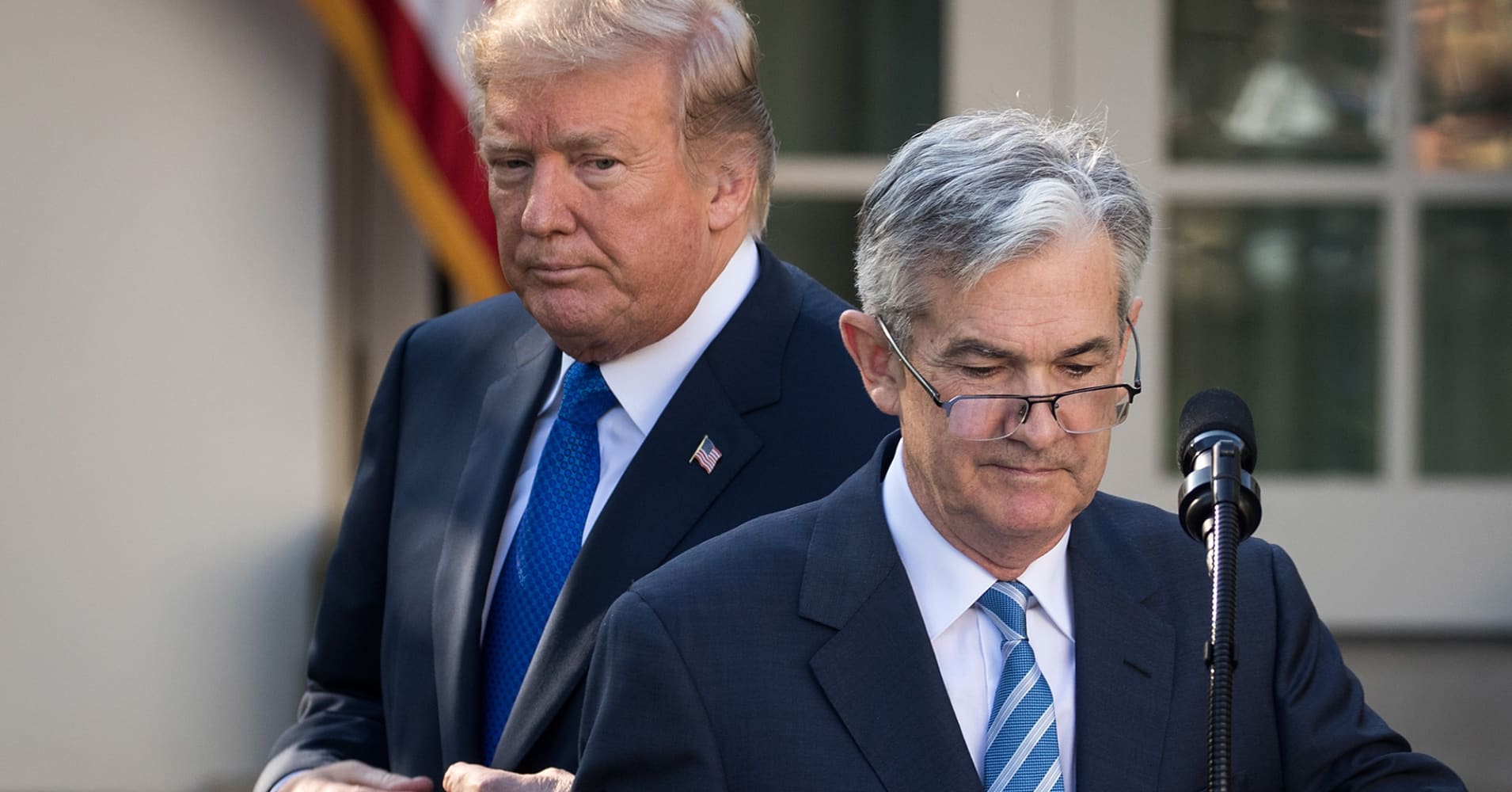
Getty Images
President Donald Trump looks on as his nominee for the chairman of the Federal Reserve Jerome Powell takes to the podium during a press event in the Rose Garden at the White House, November 2, 2017 in Washington, DC.
While President Donald Trump has complained publicly about Federal Reserve Chair Jerome Powell, what he does with his pending nominations to fill two remaining vacancies on the board will tell whether he wants to escalate his fight with the Fed.
Trump has nominated former Fed staffer Nellie Liang and Carnegie Mellon economist Marvin Goodfriend, but their confirmations have been stalled in the Senate for months. Whether Trump can push out Powell, he might try to plant allies or an obvious Powell replacement in those seats, instead.
“Near term we will be watching carefully to see whether the administration decides to dump its two struggling Fed Board nominees and replace them not with other mainstream nominees but with Trump allies or obvious candidates to replace Powell at some point in the future,” Krishna Guha, vice chairman of Evercore ISI, said in a note to clients.
Trump has been complaining for months about Fed monetary policy, claiming rising interest rates are putting a brake on his economic plans. Recent reports showed Trump privately has discussed firing Powell because of his frustration with stock market losses in recent months. Both the Dow and S&P 500 are down more than 12 percent this month — on track for their worst December performances since the Great Depression in 1931.
While debating Trump’s legal authority to dismiss the Fed chief, markets will be “sensitive to any suggestion that Trump is trying to put loyalists onto the Fed Board or trying to preposition a Powell successor who could be called on either when Powell’s term is up or perhaps sooner in the event that Trump decided at some point to try to remove Powell early after all,” Guha said.
On the contrary, if Trump were to resubmit the current nominees or put forward new nominees who are more decidedly less aggressive on interest rates but are considered independent, it could mean that Trump would decelerate the conflict with the central bank, which could bring some relief to the financial markets.
“We think Trump understands — his economics team certainly does — the likely adverse response from markets and this will be the most effective deterrent,” Guha said.
Be the first to comment